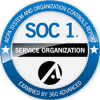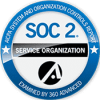Open Minds’ recent market intelligence report LTSS Shift – Finding the Opportunities by Athena Mandros cites 2013 expenditures associated with Medicaid’s Long term Support and Services (LTSS) reaching an astonishing $282.9 billion – 9.3% of the $2.4 trillion in national health care expenditures for 2013. Additionally, Mandros notes that approximately 41% of the 2013 LTSS spend was for non-residential institutional levels of care like nursing homes, assisted living programs, and continuing retirement communities, compared to 52% in 2008.
With the growing LTSS expenditures, what are the opportunities for improvement? The focus has shifted immensely since 2013 from institutional care to providing services in the community to support the consumers’ community tenure. This shift is a result of the change to Medicaid managed care for LTSS. Medicaid’s Managed Long Term Services and Supports (MLTSS) programs have grown significantly over the past several years and are expected to increase even more in the coming years due to the implementation of new Medicare-Medicaid financial alignment models. Fortunately, MLTSS has proven to provide the necessary platform for change, not only to improve the national expenditures around this population, but also to ultimately improve the quality of life and care setting preferences for these consumers. This shift is meaningfully important for consumers who are juggling multiple chronic health conditions and may require help with activities of daily living, like bathing, dressing, or eating. Community-based LTSS avoids institutionalizing these consumers and is ultimately a more cost-effective and quality of life driven solution for this population.
Where do we go from here? If we continue to follow the path of Medicaid’s MLTSS, we will continue to see expansion in the consumer-centered and all-stakeholders approach to care at the forefront of the consumer’s plan of care. Utilizing this kind of care team approach will ensure consumers receive all that they require at the community level to avoid unnecessary institutionalization – from the physical health, behavioral health, and social and community resource perspective. Success of new MLTSS programs will rely on solutions to enable care teams – across multiple providers and agencies – to play an active role in the consumer’s needs, preferences, and overall plans of care. This approach must incorporate fully integrated health care along with coordinated services across the consumer’s full continuum of care. These requirements go well beyond the capacity of most providers electronic health record systems.
Care coordination technology solutions that support the level of health and community systems required by new MLTSS programs are available. The InfoMC Coordinated Care Solution is designed to support a consumer-centric and provider integrated system of care approach for MLTSS populations, and closes the communication and information sharing gaps between payers, providers, members, caregivers, and other stakeholders.
Designed to support the Centers for Medicare and Medicaid Services’ (CMS) key elements for MLTSS programs, the InfoMC Coordinated Care Solution ensures a collaborative and fully integrated approach for care planning, care monitoring and financial management of the dual eligible, complex and/or chronically ill populations of MLTSS programs. Through a suite of data analytics that support care coordination workflows, InfoMC provides real time solutions for MLTSS programs and evolving health care strategies.
Read more at INFOMC_MLTSS Executive Brief_March2016.
By Susan Norris, Ph.D., Chief Clinical Officer, InfoMC








